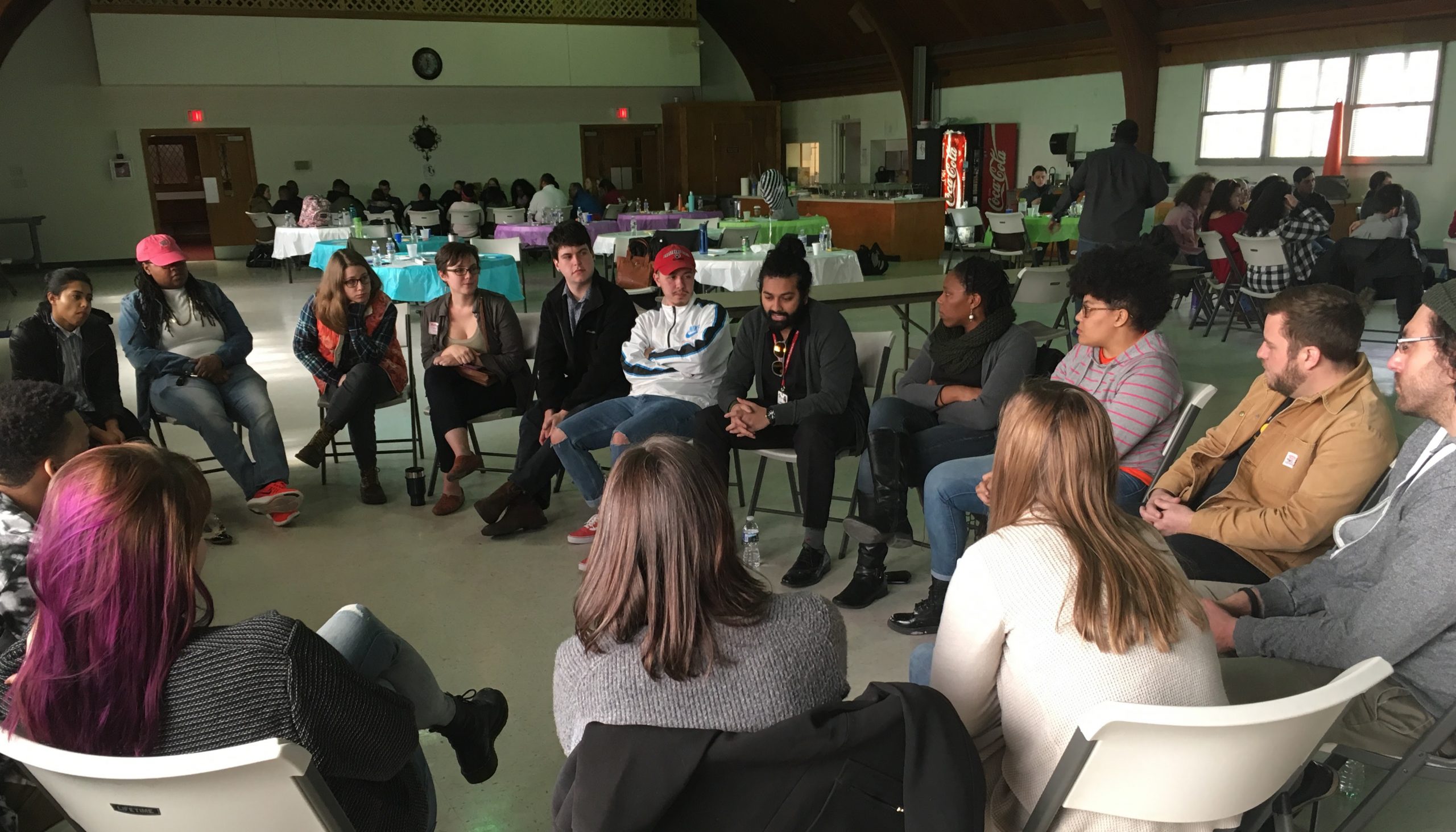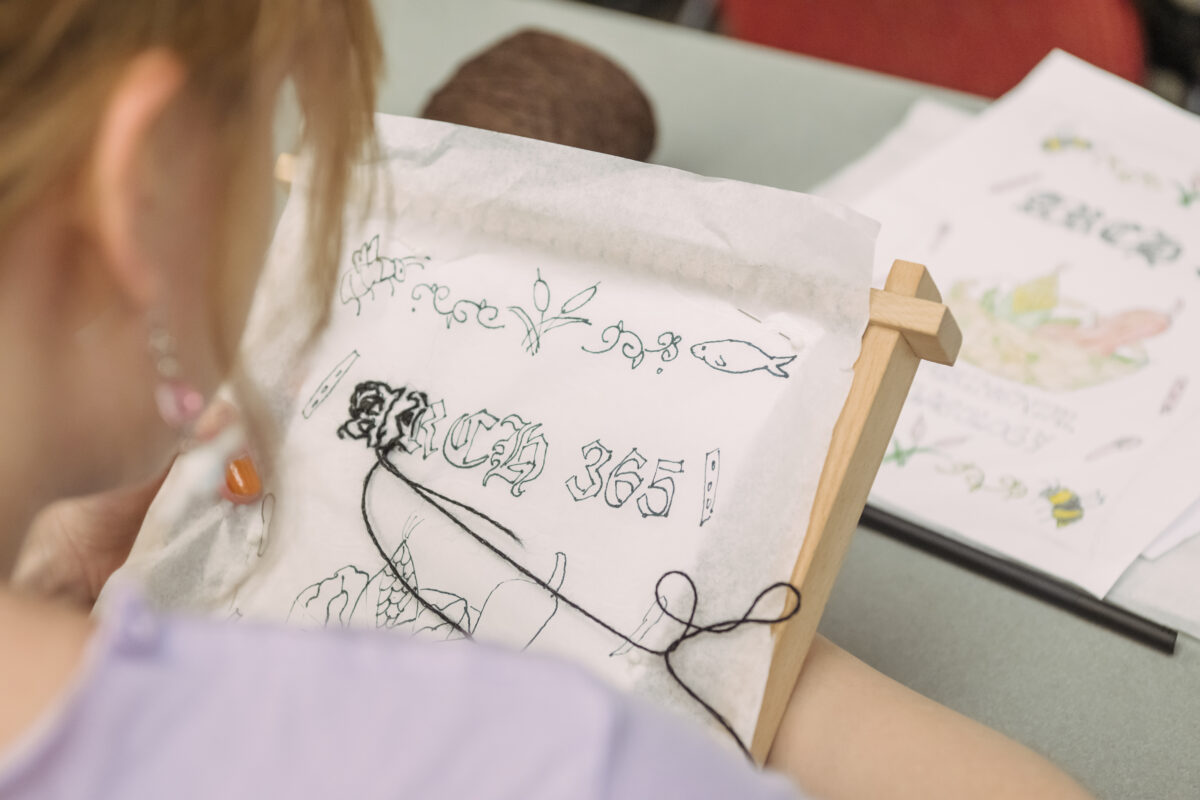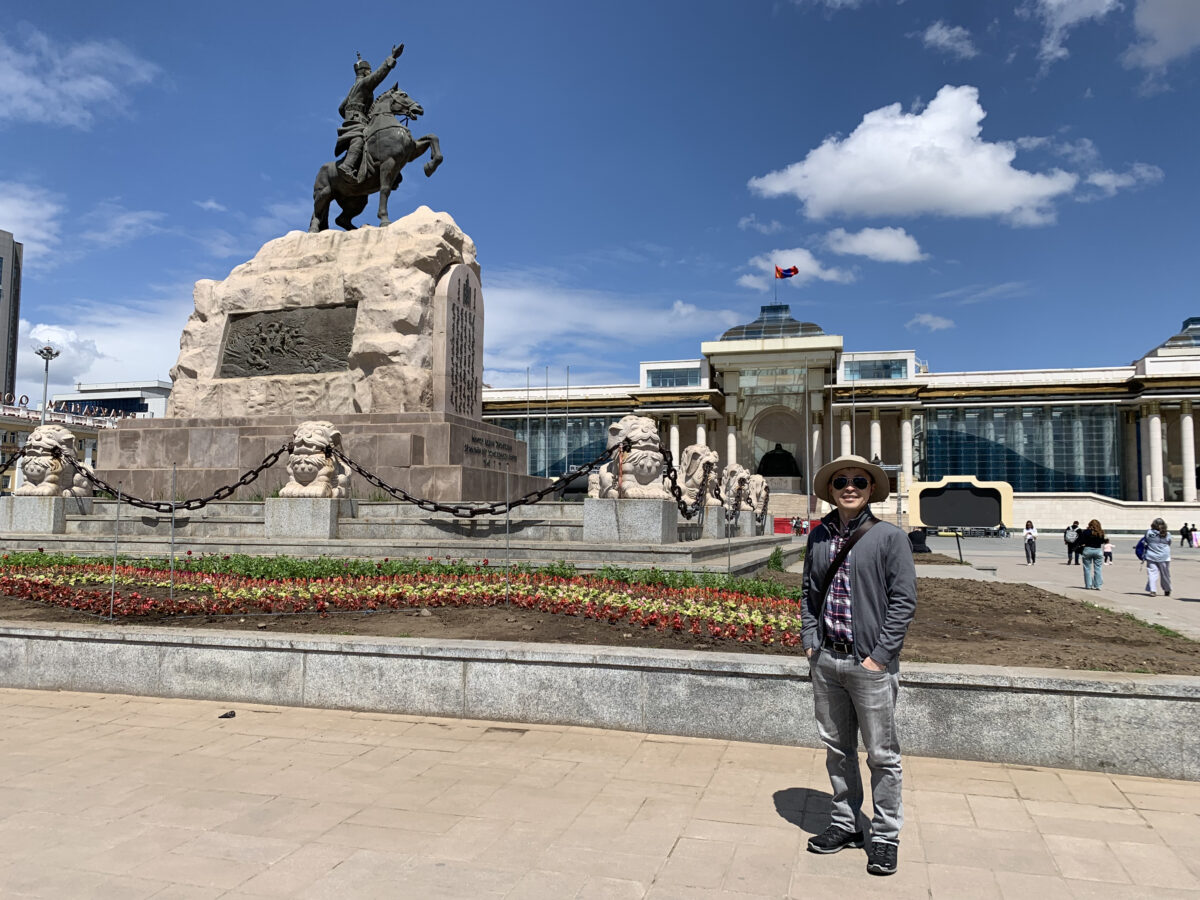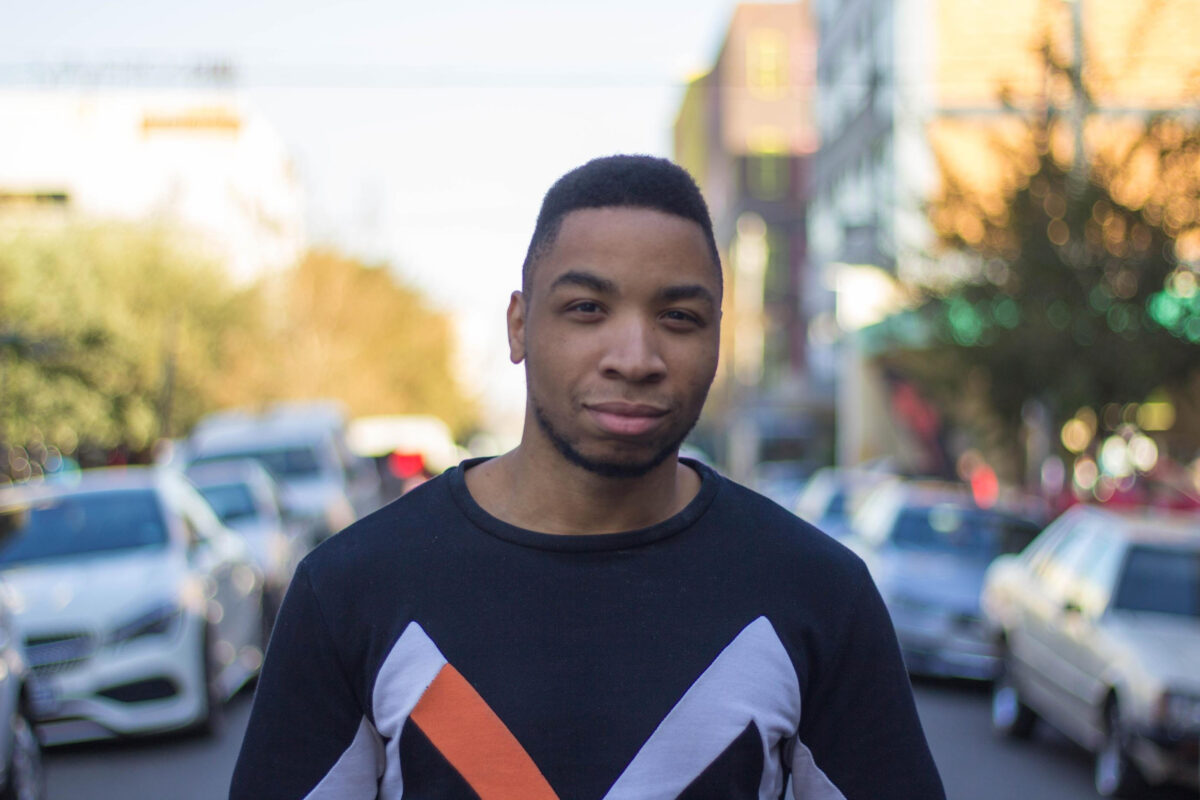The fourth annual National Day of Racial Healing is on Tuesday, January 19. The goal of the day is to promote racial healing and equity across the United States through collective action. UMBC will observe the day in spirit and action.
As a unified front, UMBC leadership—including President Freeman Hrabowski, Provost Philip Rous, and shared governance leaders—are signing a letter to Maryland’s Congressional delegation in support of a Congressional Resolution, which calls for the establishment of a United States Commission on Truth, Racial Healing, and Transformation (TRHT).
“Having university leadership sign on in support of this resolution is a big step,” says Eric Ford, director of The Choice Program at UMBC. “It sets the example for other institutions of higher education to do the same. For so long, higher ed has perpetuated inequities and now we have the responsibility to address it. By taking this step, UMBC is sending a message to the campus community that inclusive excellence is not just a slogan but a virtue we live by.”
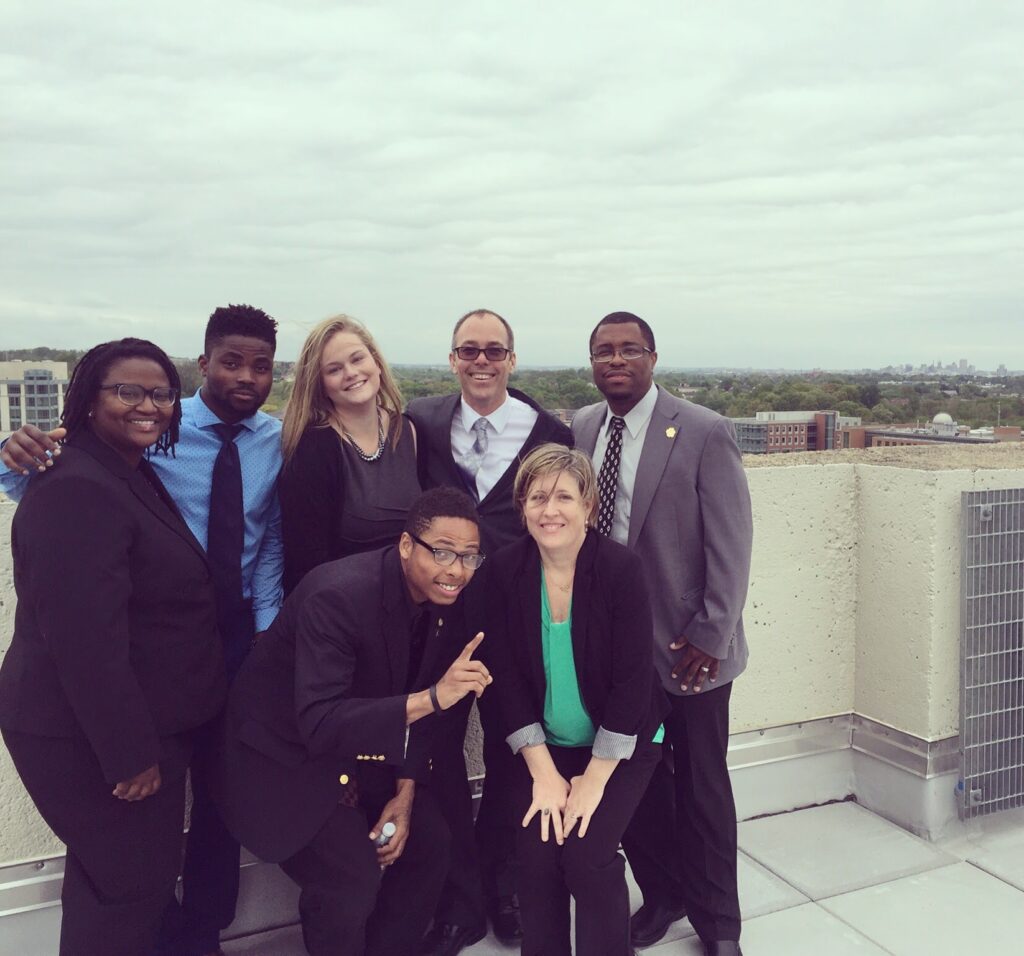
Melody Wright, president, Non-Exempt Staff Senate, is one of the campus leaders signing the joint letter. “The voices of those seeking justice have been muffled for far too long,” says Wright, “and those voices must be amplified and heard for true racial healing to begin. You cannot truly understand someone’s story unless you have lived it with them, but carefully listening to someone’s lived experiences is a great place to start.”
In addition to the letter signed by campus leaders, UMBC community members have an opportunity to write to their own senators and representatives about the TRHT resolution. An online event on January 19 will provide additional information about the goal of the TRHT resolution and the work of Truth, Racial Healing, and Transformation at UMBC.
Read Senator Ben Cardin’s response to UMBC’s letter here.
Transformation is ongoing work
In 2017, UMBC partnered with the Association of American Colleges and Universities to become one of the first Truth, Racial Healing, and Transformation Campus Centers in the country. UMBC’s THRT Campus Center work involves breaking down racial hierarchies with a focus on the university’s service-learning and community engagement partnerships in Baltimore City. Ford shares that truth, racial healing, and transformation are all essential to effective and responsible service-learning and community engagement.
To begin the process of truth telling, The Choice Program underwent a yearlong antiracism audit of the organization. As a result, according to Ford and Frank Anderson, a doctoral student in language, literacy, and culture and the associate director of programs at Choice, the organization’s entire service model was rewritten. Their focus is to ensure that the voices and experiences of the young people being served are at the forefront of the work.
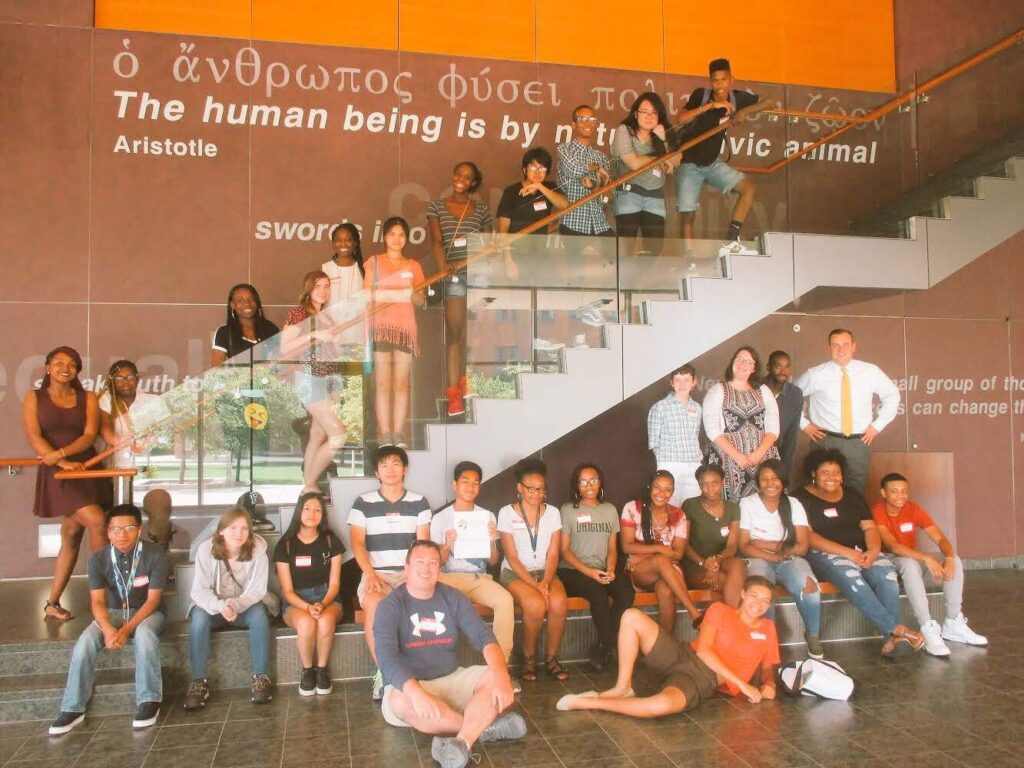
The Choice Program—the Shriver’s Center’s oldest and largest service-learning initiative—has become an opportunity to envision the TRHT model at scale, identifying what it means to engage 36 AmeriCorps members as they serve more than 600 young people each year.
Accountability is crucial
Briscoe Turner ’21, psychology, was drawn to Choice after hearing about the program-wide audit. Now an intern at the TRHT Campus Center, Turner is helping to spearhead the letter-writing initiative.
“Members of Congress need to hear the thoughts and experiences of students and staff to make sure that the TRHT Commission actually serves its purpose by actively challenging the racist practices and policies embedded in this country’s major institutions that impact the surrounding community,” says Turner. “Accountability is crucial.”
By following the TRHT model, The Shriver Center has also been able to work with undergraduate researchers to reevaluate media narratives about Baltimore. The Center has also used lessons from TRHT to reflect on already successful programs like College Night.
With College Night, young people from the Baltimore area connect with UMBC every Monday night, through on-campus visits pre-COVID-19 and virtual events today. Through the THRT model, organizers revised College Night training materials and reflections to ensure volunteers understood the broader context within which they were working.
Supporting nationwide change
In September 2020, UMBC hosted the first Truth, Racial Healing, and Transformation Town Hall during which community members learned more about the THRT Campus Center and UMBC’s connection to a national framework addressing race equity. Community partners and alumni spoke about how structural racism has impacted youth development in Maryland and how campus members can become agents of change.
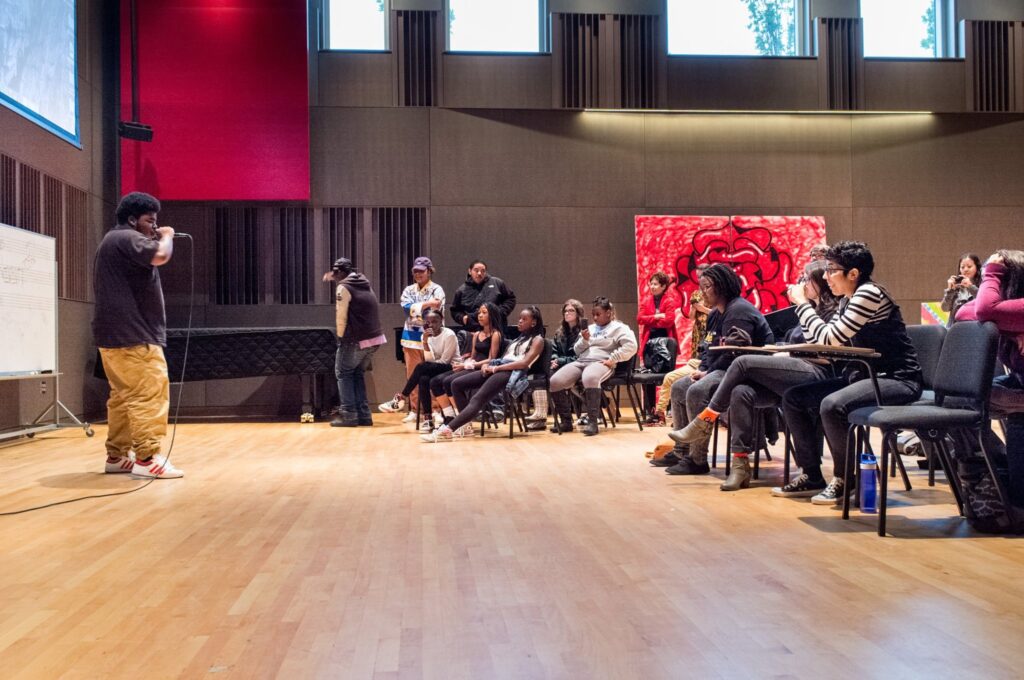
UMBC supports the Congressional resolution, proposed by Sen. Cory Booker and Rep. Barbara Lee, says Ford, because it amplifies the broader goals of the TRHT center and the important work being done by Retriever students and staff.
“It speaks truth to power by encouraging the acknowledgement of centuries of oppression of people of color,” says Ford. “It stresses the importance of telling the ‘story’ of people of color and their experiences in this country, which will restore our humanity that was stripped away by structural racism. And it is a step toward system change which is needed to achieve equity.”
A multiprong approach
UMBC’s TRHT Campus Center is only one facet of a larger institutional acknowledgement that the university, like others across the country, needs to confront racism within its own structures and community.
In 2019, UMBC founded the Office of Equity and Inclusion (OEI), which is responsible for promoting and coordinating the university’s core values of inclusive excellence and equity. The center has primary responsibility for managing UMBC’s work related to Title IX as well as other civil rights issues.
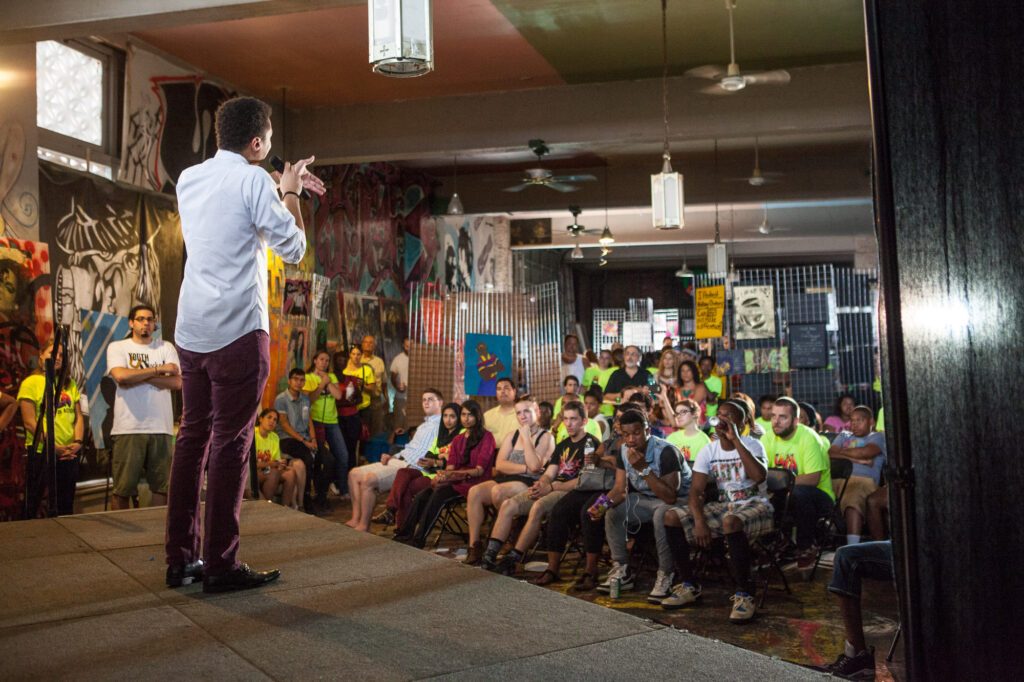
In June 2020, UMBC formed an Inclusion Council to bring together faculty, staff, students, and alumni to help address issues of equity and inclusion at UMBC. The council’s co-chair, Ariana Arnold, director of OEI, shares her hopes for the group and campus as a whole.
“What I’d like to be able to say a year from now,” Arnold shares, “is that we are doing the work and not just talking about the work. And that five years from now we’ve had a measurable impact on campus in terms of both engaging people from all political, racial, ethnic, religious, cultural backgrounds, abilities, and nationalities and improving the sense of inclusion and belonging on campus.”
The Inclusion Council, OEI, and TRHT Campus Center are working together to make that vision of UMBC come to fruition. UMBC’s letter to Maryland’s representatives supporting the effort to bring the TRHT model to a national scale is the next step in the university’s ongoing work for truth, racial healing, and transformation.
Featured photo: In a 2017 gathering, Choice staff and AmeriCorps members take part in reflecting on how service transformed their lives. Photo courtesy of Eric Ford.
Tags: CAHSS, campus, ChoiceProgram, diversity, ShriverCenter

